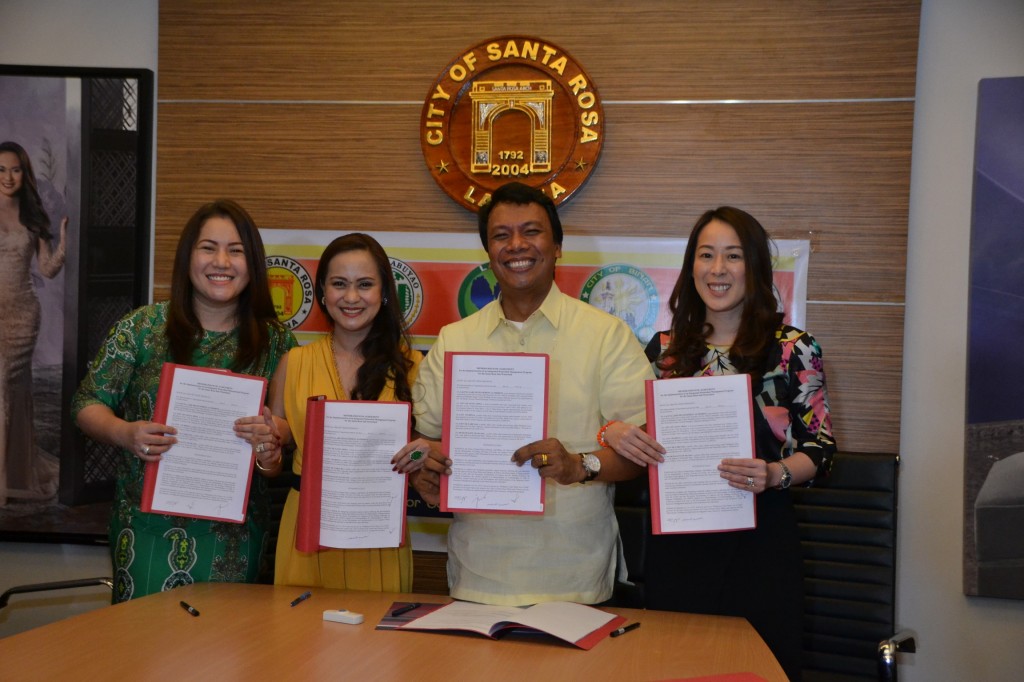
The Santa Rosa Watershed Water Quality Management Area (WQMA) Board is the first watershed institution to address groundwater scarcity, pollution and flooding – problems plaguing the Laguna Lake’s towns and cities. Concretizing the WQMA’s creation are Silang Mayor Emilia Lourdes Poblete, Santa Rosa Mayor Arlene Arcillas, Laguna Lake Development Authority (LLDA) General Manager Nereus Acosta, plus Biñan Mayor Len-len Alonte. The next step is to ratify the 10-year WQMA plan. (LLDA)
Water is gold. With increased population, consumption and climate change, multi-city alliances will be crucial in managing essential ecosystem services such as water provision. Rapidly-urbanizing landscapes in the CALABARZON region are confronted by challenges on flood and watershed management. In Laguna’s Santa Rosa Sub-watershed, groundwater studies show how rates of extraction will exceed rates for groundwater recharge by 2023. Many shallow wells in lakeside Laguna communities are reported to be depleted, polluted and unfit for human consumption.
Last 2 December 2014, leaders of the Santa Rosa Watershed signed a Memorandum of Agreement (MOA) creating the Water Quality Management Area (WQMA) Board. It is the first watershed institution created in the Laguna Lake region and the first to address multiple facets of the water cycle.
The MOA is the final product of a Coca-Cola funded project implemented by the World Wide Fund for Nature (WWF) from 2008 to 2012 to assist local stakeholders in sustainably managing the Santa Rosa Sub-watershed. The next step is for the WQMA Board to approve the 10-year WQMA plan as a basis for common legislation, budgeting and coherent action by local government units.
A multi-year climate adaptation study conducted by WWF-Philippines and the BPI Foundation revealed the need to ‘think beyond a city’s fences’ when managing issues on water and resource-security. “Cities cannot work alone. Flooding, pollution and water scarcity respects no boundaries,” notes WWF-Philippines Senior Consultant for Water Resources Management Ed Tongson. “Unless these issues are addressed by upstream and downstream communities through a watershed approach, unilateral solutions by individual towns or cities will not be enough.”
Looming questions include who

should be made accountable for finding and implementing solutions. While watershed based approaches are widely discussed and offered as solutions, there is no institutional framework to draw on. The closest legal recourse for creating accountable watershed institutions is Republic Act 9275 or the Clean Water Act of 2004. The Act establishes a Water Quality Management Area Board whose members consist of LGUs, NWRB, LLDA, NIA, water utilities, water districts, NGOs and other stakeholders.
“Water is the most important element on Earth, which is why water resource management is a top priority. There are over 30 agencies involved in the management of one or more aspects of Santa Rosa’s water cycle,” adds Tongson. “When planning was once uncoordinated and fragmented, the WQMA Board can finally ensure unified and strategic efforts to keep the tap flowing.”







